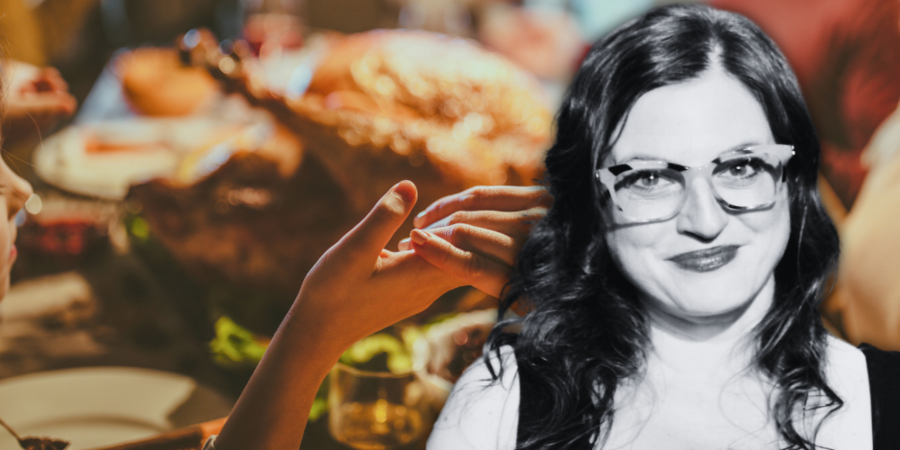In New York, schools are closed for holidays throughout the year. There’s Rosh Hashanah, Indigenous People’s Day, which used to be known as Columbus Day, Diwali, only two days for Thanksgiving, barely a week for Christmas and New Years, Lunar New Year, winter break, Eid al-Fitr, just a few days for spring break, which encompasses Easter, Eid al-Adha, and Juneteenth.
As a Christian family, I must admit that we never quite knew what to do with the holidays for other cultures and religions. Often, they would sneak up on us since they weren’t in our repertoire of dates and we’d be left with a day off school that had no structure to it, as in we weren’t prepared to take a trip or see family. Meanwhile, for Thanksgiving, Christmas and Easter, we’d be hard pressed to see all the family we wanted to, to attend all the gatherings to which we were invited. The holidays we celebrated were truncated and the holidays we didn’t celebrate were a bit useless.
Then we moved to a red state.
Schools here in red America give kids an entire week off for Thanksgiving. We get two weeks off for Christmas and for Easter, the holiest time of the Christian calendar, we get a full week, not just a couple days. This extra time off gives us a chance to travel to see family, to spend time with cousins without checking to see if we have to hurry on to the next thing or even worse, giving promises to try and see them next year, only to encounter the same problems next time. It never occurred to me that things could be different, I didn’t realize that there were places that prioritized American and Christian holidays. By New York standards, what I’m saying sounds racist and not at all appropriate, but being able to celebrate the holidays that matter most to me and my family has been nothing short of a relief.
Much of my family lives in New England, and the night before Thanksgiving would see us heading off from Brooklyn as soon as school let out to make the trip north. A trip that should take 5 hours based on mileage would take closer to 7 or 8 based on traffic—and that was just added time in the city as we tried to get out of town along with everyone else at the exact same time. Even though I’m now hours further away, we can make the trip in our own time without fighting to get across the Whitestone Bridge. That’s all just to say our holidays are now accessible, but there’s more than that, they are also recognized, not delegitimized, they are prominent, not secondary.
Here in red America we say Merry Christmas, we say Happy Thanksgiving, we say He Is Risen, and we don’t feel bad about it. It has been years since I felt that the holidays that matter to me are not perceived of as shameful displays of white supremacy and some kind of Christian privilege. These holidays are not relegated to second or third class status, but are the primary holidays, center stage, the main event. In fact, when I went to the grocery store to pick up pastry crust, it was all out. Most of the eggs were gone, too. And I don’t even know where a person would have to go to find a turkey at this point.
Cultural relativism has swept the United States and nowhere is that more clear than in our biggest cities. As we embrace more and more cultures and religions, somehow the ones that are celebrated by the most people in the US are relegated to second tier. As we ingratiate ourselves to the world’s religions and holy days, we forget that our own have meaning and are not simply the default. When we treat our own customs and traditions as though they are not essential, when we assume that since they have been here for 200 or even 2000 years they will simply last forever even untended, we do ourselves a disservice, and we further do that disservice to our children.
When we put the world’s religious holidays and traditions ahead of our own we indicate to our children that these traditions are more important, but we also deny them access to those traditions, thereby relegating our own traditions to the dust heap of irrelevancy and providing our children a void as opposed to a history. Our traditions will not survive if we don’t nurture them. Our children will be barred from celebrating the new traditions because they have no connection to them and will be barred from celebrating the old traditions due to our own negligence.
I am grateful to no longer be honoring my faith and family traditions in a vacuum, grateful to be in a cultural setting where mine is not the only family that leans into Thanksgiving, Christmas and Easter, and grateful that these traditions are reinforced at school instead of merely tolerated. This year, when we take the full week of Thanksgiving off of school and travel to see family, I will be even more grateful for the time spent, the traditions shared, the bonds forged, knowing that our customs and values are being passed on and cherished not ignored and forgotten.
This Story originally came from humanevents.com

